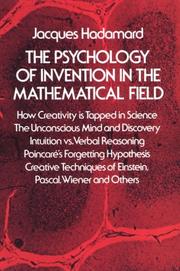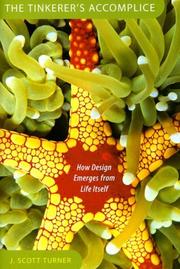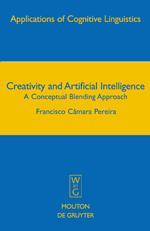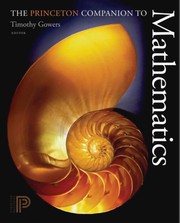The Mathematician's Mind: The Psychology of Invention in the Mathematical Field by Jacques Hadamard - ISBN 0486201074 - Princeton University Press 1945
note that this was finished much earlier but without recall, recall starts a month before the current date to already start with very spaced recalls
Motivation
Being interested in creativity and convinced that mathematics, as a discipline using abstraction to solve problems, does require such a skill, unlike the nearly automated techniques taught during school. Also previously discovered some of the work of Hadamard in the history of mathematics.
Pre-reading model
Draw a schema (using PmGraphViz or another solution) of the situation of the area in the studied domain before having read the book.
Reading
- Introduction
- distinction between discovery and invention (p.xi)
- "As my master, Hermite, told me: <<We are rather servants than master in Mathematics.>>" (p.xii)
- 1 General Views and Inquiries
- The Mathematics "Bump" (p3)
- Psychologists' Views on the Subject (p6)
- Mathematical Enquiries (p7)
- Some Criticisms (p9)
- Pointcarre's Statements (p11)
- Looking at One's Own Unconsciousness (p14)
- Instances in Other Fields (p15)
- enunciation a potential process starting by "incubation" then "illumination" following Graham Wallas' Art of Thought (p16)
- The Chance Hypothesis (p18)
- "explanation by pure chance is equivalent to no explanation at all and to asserting that there are effects without causes" (p19)
- 2 Discussions on Unconsciousness
- The Manifold Character of Unconsciousness (p23)
- Frindge-Consciousness (p24)
- Successive Layers in the Unconscious (p26)
- 3 The Unconscious and Discovery
- Combination of Ideas (p29)
- "it is obvious that invention or discovery, be it in mathematics or anywhere else, takes place by combining ideas." (p29)
- footnote on the etymology of cogito as "to shake together"
- an intuitive principle that is coherent with evolutionary epistemology and the necessity to handle modularity
- The Following Steps (p30)
- "this first process, this building up of numerous combinations, is only the beginning of creation, even, as we should say, preliminary to it" (p30)
- To Invent is to Chose (p30)
- Coming Back to the Unconscious (p31)
- mention of "mathematical beauty" or "geometric elegance" probably close to Dijkstra sensibility on "mathematical elegance"
- "it is clear that no significant discovery or invention can take place without the will of finding" (p31)
- "that invention is choice, that this choice is imperatively governed by the sense of scientific beauty" (p31)
- Other Views on Incubation (p32)
- offering 2 chief hypothesis (p33)
- freshness or rest-hypothesis
- absence of interference or forgetting-hypothesis
- Discussion of These Ideas (p34)
- Other Views on Illuminations. An Intination Stage (p38)
- Further Theories on the Unconscious (p40)
- 4 The Preparation Stage. Logic and Chance
- Throughout Conscious Work (p43)
- Conscious Work as Preparatory (p45)
- Pointcarre's View on the Mode of Action of Preparatory Work (p46)
- Logic and Chance (p47)
- Personal Instances (p50)
- The Case of Pascal (p53)
- Attempts to Govern our Unconscious (p54)
- 5 The Later Conscious Work
- The Fourth Stage (p56)
- "preparation, incubation and illumination"
- "a rather mechanical part of the work [...] verification"
- A Statement by Paul Valery (p57)
- Numerical Calculators (p58)
- Appreciation of One's Own Work (p60)
- "every stage of the research, has to be, so to speak, articulated to the folowing one by a result in a precise form, which I should propoe to call a relay-result" (p62)
- Incubation and Relay-results (p63)
- 6 Discovery as a Synthesis. The Help of Signs
- Synthesis in Discovery (p64)
- The Use of Signs (p66)
- Words and Wordless Thought (p66)
- Boileau's famous verses "
Ce qui se conceoit bien s'enonce clairement,
Et les mots pour le dire arrivent aisement," (p70)
- Mental Pictures in Usual Thought (p71)
- Mental Pictures in Tense Thought (p73)
- Personal Observations (p75)
- "I have been told by some friends that I have a special way of looking when indulging in mathematical research. I hardly doubt that this especially accompanies the construction of the schema in question." (p78)
- see also Confirmation holism on Wikipedia, also known as Theory Laden or Theory Dependance
- a bias that seems to let some who developed their own model to "see what other can not see", yet begging for experimental confirmation
- "Quand on demande a Michel Foucault ce qu'un livre est pour lui, il repond: c'est une boite a outils. Proust.... disait que son livre etait comme des lunettes: voyez si elles vous conviennent, si vous percevez grace a elles ce que vous n'auriez pas pu saisir autrement; sinon laissez mon livre" page 73 of Mille Plateaux also published in La Guerre des Idees and Literary philosophers
- Respective Roles of Full Consciousness and Frindge-Consciousness (p80)
- Other Stages of Research (p81)
- Another Conception (p83)
- An Inquiry among Mathematicians (p83)
- Some Ideas of Descartes (p86)
- Other Thinkers (p89)
- Is Thought in words without inconvenience (p92)
- A Valuable Description (p96)
- Comparison with Another Question Concerning Imagery (p97)
- Can Imagery be Educated? (p98)
- "Such an auto-education of mental processes [Titchener ability to use auditory and visuals images] seems to me to be one of the most remarkable achievement in psychology." (p98-99)
- Using Relay-results (p99)
- General Remarks (p99)
- Addendum (p99)
- 7 Different Kinds of Mathematical Minds
- The Case of Common Sense (p100)
- Second Step: The Student in Mathematics (p103)
- Logic and Intuitive Minds: A Political Aspect of the Question (p106)
- Pointcarre's View of the Distinction (p108)
- Application of Our Previous Data (p112)
- (A) More or Less Depths in the Unconscious (p112)
- "It is quite natural to speak of an intuitive mind if the zone where ideas are combined is deeper, and of a logical if that zone is rather superficial." (p113)
- "If that zone is deeper, there will be more difficulty in bringing the result to the knowledge of consciousness and it is likely to happen for what is strictly necessary." (p113)
- (B) More or Less Narrowly Directed Thought (p114)
- (C) Different Auxiliary Representations (p114)
- Other Differences in Mathematical Minds (p115)
- 8 Paradoxical Cases of Intuition
- Fermat 1601-1661 (p116)
- Riemann 1826-1866 (p117)
- Galois 1811-1831 (p118)
- A Case in the Work of Pointcarre (p121)
- Historical Comparisons (p122)
- "we must admit that some part of the mental process develop so deeply in the unconscious, even important ones, remain hidden from our conscious self." (p122)
- 9 The General Direction of Research
- Two Conceptions of Invention (p124)
- "One could say that application's constant relation to theory is the same as that of the leaf to the tree : one supports the other, but the former feeds the latter." (p125)
- The Choice of Subjects (p126)
- "Then, how are we to select the subject of research? This delicate choice is one of the most important things in research; according to it we form, generally in a reliable manner, our judgement of the value of a scientist." (p126)
- Direction of Inventive Work and Desire of Originality (p131)
- Final Remarks
- Appendix 1 An inquiry into the working methods of mathematicians
- Appendix 2 A testimonial from professor Einstein
- Appendix 3 The invention of infinitesimal calculus
Overall remarks and questions
- appreciating and enjoying beauty is also a training
- like training an evolutionary filter to remove and increase quality again and again.
- if reading is an act of not simply acquiring words but "executing" the thoughts of the author, how can one allows himself to meta-think without having competing executions during the reading?
- is there a most efficient way to handle that "battle for consciousness" of each executing series of thoughts
- instead of focusing on the quality of thoughts, one could think in term of "cognitive drag"
See also
Critics
Point A, B and C are debatable because of e, f and j.
Vocabulary
(:new_vocabulary_start:)
scantily
a sieve
(:new_vocabulary_end:)
Post-reading model
Draw a schema (using PmGraphViz or another solution) of the situation of the area in the studied domain after having read the book. Link it to the pre-reading model and align the two to help easy comparison.
Back to the Menu
Categories
Back to the Menu
Other read books linking to the The Mathematician's Mind page :
Back to the Menu
 Fabien Benetou's PIM
Fabien Benetou's PIM










